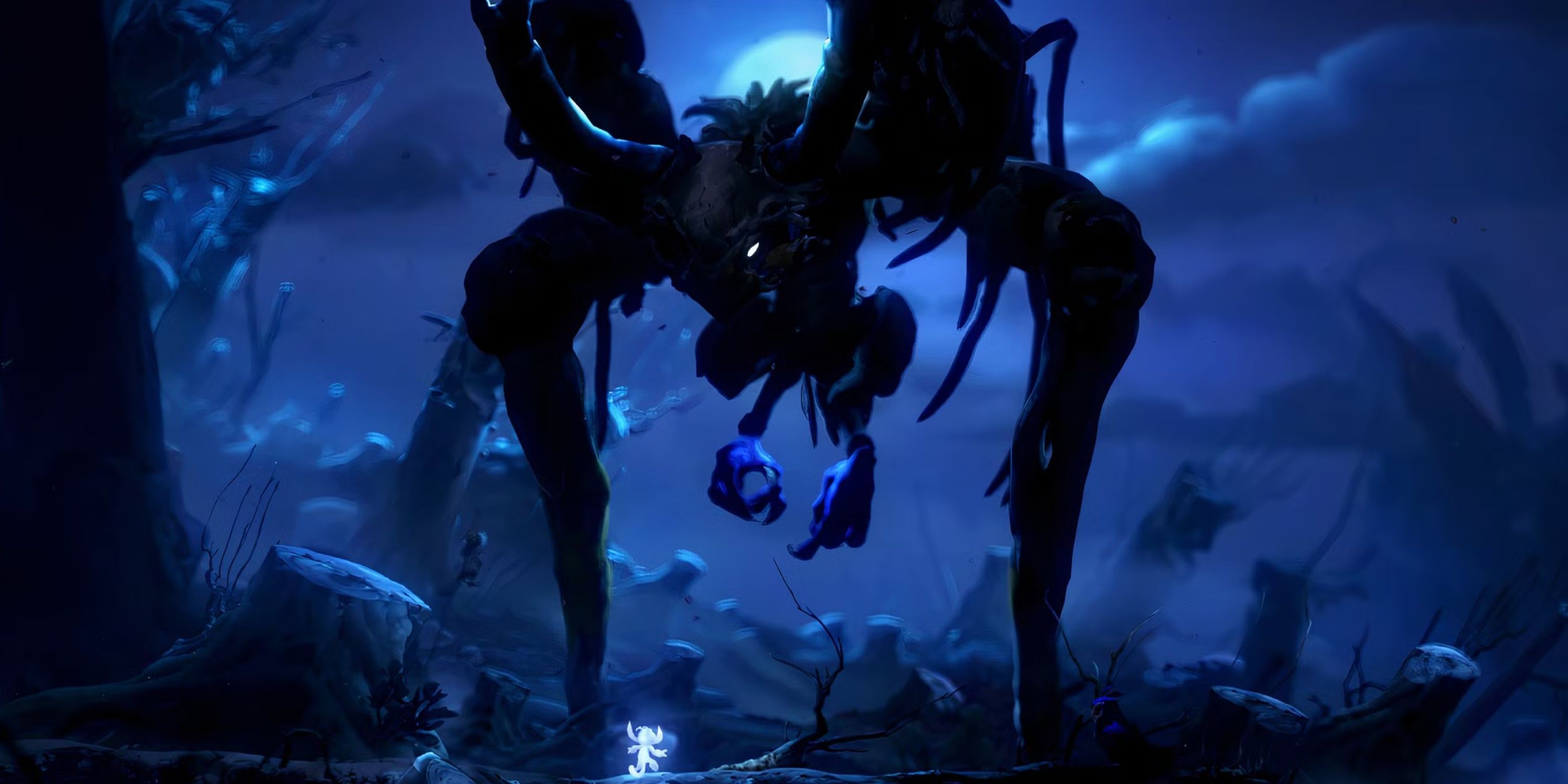Best Metroidvania Games With Skill Trees
Description

Summary
- Xeodrifter offers weapon customization, allowing players to adjust upgrades for specific challenges or boss fights.
- Afterimage’s skill tree offers diverse build freedom, letting players specialize in different playstyles or approaches.
- Grime’s Absorption skill tree mechanic changes player approaches by devouring foes for new abilities, enhancing gameplay.
Metroidvania games thrive on that irresistible loop of exploration, discovery, and empowerment. But when a solid skill tree enters the mix, it adds a layer of strategy that can turn a satisfying adventure into a deeply personal one. Whether it’s through brutal combat, creative mobility, or wild experimentation, these games give players the freedom to carve out their own path through sprawling, interconnected worlds.
Some lean hard into combat flexibility, others let players tailor traversal or defense, but each one on this list knows exactly how to make skill progression matter. Here are the best Metroidvania experiences where the skill tree isn’t just a bonus but a core part of what makes the journey memorable.
Xeodrifter
Little Game, Big Customization
On the surface, Xeodrifter might look like the odd one out. It’s the shortest game on this list, it has the simplest visuals, and it doesn’t exactly aim for sweeping narrative beats or expansive lore. But in terms of raw design, it’s surprisingly clever. It condenses the Metroidvania experience into a tight few hours, with a focus on mobility upgrades and fast-paced boss fights across four small but interconnected planets.
What gives it a place on this list, though, is its approach to weapon customization. Rather than unlocking static upgrades, players collect enhancement nodes and then assign them across several categories: rate of fire, bullet size, spread, and more. These tweaks can be shifted around at any time, letting players build different setups for specific boss fights or navigation challenges. For a game this compact, it manages to pack in an impressive amount of player agency.
Afterimage
Rebirth Has Never Felt This Melancholic
Gorgeous visuals might be the first thing that draws players into Afterimage, but the real hook is how it hides RPG depth behind that beautiful painterly sheen. Every part of the world feels deliberate, from the fragile ruins of Engardin to its forgotten sky kingdoms. The lore is delivered in fragments, gently encouraging players to piece together its tragedy on their own time.
And then there’s the skill tree. Or more accurately, the trees. With weapon-specific branching paths, elemental specializations, and utility upgrades, players are never locked into a single approach. There’s an absurd amount of build freedom here, and the game doesn’t force any one route. Want to focus on greatsword combos and fire damage? Go for it. Prefer fast daggers and evasion boosts? That’s valid too. It’s a slower burn than most titles on this list, but for those who stick around, the payoff is personal and powerful.
Ori And The Will Of The Wisps
Platforming That Feels Like Poetry
What Ori and the Will of the Wisps lacks in edge, it makes up for with grace. Everything here flows, from the storytelling to the animation to the way Ori zips through the air like a spark of light. It’s a Metroidvania where traversal feels like a reward in itself, and mastering each jump or dash is as satisfying as unlocking a new skill. While the combat took a major leap forward compared to the first game, it’s still the movement that steals the show.
The skill tree system is split into shards and upgrade paths, letting players mix and match passive abilities like triple jumps, deflects, or ranged attack bonuses. And because the game is constantly throwing platforming gauntlets at players, the ability to respec and tweak these shards on the fly ends up being more impactful than it looks. There’s freedom here, but it’s filtered through the tight control and design precision that Moon Studios is now famous for.
Axiom Verge 2
Shifting Worlds & Splintered Paths
There’s something daring about how Axiom Verge 2 abandons the original’s gun-focused approach and instead leans into exploration, hacking, and multidimensional traversal. While its combat doesn’t hit as hard as its predecessor, the real star here is the world design. It constantly folds in on itself, revealing strange pocket dimensions, secret maps, and alternate realities that are often accessed through abstract logic rather than brute force.
Its skill tree feeds into this philosophy. Rather than dumping raw stat boosts, it gives players tools that encourage experimentation. The drone system, for example, allows for alternate exploration through tight spaces and even has its own set of upgrades and a distinct mobility system. And hacking isn’t just a gimmick. It lets players reprogram enemies and machinery in real-time, adding a bizarre level of tactical play to encounters. It’s less about power and more about adaptation, and that’s a rare thing in this genre.
Blasphemous
Hallowed Be Thy Blade
Blasphemous doesn’t care about being approachable. It’s filled to the brim with religious iconography, pixelated gore, and twisted bosses pulled straight from a medieval fever dream. But once players settle into the rhythm of its punishing parries and animation-locked swings, it becomes one of the most rewarding Metroidvania experiences out there. It’s also one of the few games where the platforming sections feel like an extension of the protagonist’s suffering.
The skill tree in Blasphemous is deceptively simple. At first glance, it looks like just a few new sword combos and finishers. But dig deeper, and it’s clear that every upgrade has a purpose. Some are essential for surviving tougher boss patterns, while others open up faster routes or subtle combat tech that wasn’t possible earlier. Add in the Rosary bead system and prayer slots, and players end up crafting a build that reflects how they’ve learned to suffer. And somehow, that feels appropriate.
F.I.S.T.: Forged In Shadow Torch
When Your Fist Is Literally A Skill Tree
It’s hard to take a game where you play as a rabbit with a dieselpunk mech-arm seriously… until you actually start throwing punches. F.I.S.T.: Forged in Shadow Torch is an underdog success story, born from a small Chinese studio with a big vision. The game leans into heavy, momentum-based combat, where combos, aerials, and cancels come together in a fighting system that honestly feels more at home in a brawler than a traditional Metroidvania. That’s exactly why it works.
Each weapon unlocks its own skill tree, giving players dozens of new combos and movement options to play with. The Drill and Whip aren’t just gimmicks, they’re whole new playstyles. These abilities aren’t just flash, either. Many of them double as solutions to environmental puzzles or secret-hunting tools. Torch City itself is sprawling, layered with verticality and secrets that demand players invest in mobility and combat skills equally if they want to uncover everything.
Grime
Where Every Point Spent Feels Like A Tiny Revolution
There’s something borderline cathartic about Grime. Not just because of its brutal combat or grotesque biomechanical aesthetic, but because it understands that evolution doesn’t have to be clean. Instead of sticking to typical genre tropes, it mixes brutal Soulslike design with Metroidvania exploration, where death often feels like a lesson rather than a setback. And while the world design is purposefully vague and unwelcoming, it’s also strangely magnetic. Players who can push past its jagged opening hours find a disturbingly rich underworld full of secrets and shifting pathways.
The game’s skill tree is built around Absorption, a mechanic where players parry enemy attacks to literally devour their foes and gain new abilities. These aren’t just statistical boosts but entirely new forms of mobility or survivability. Whether it’s learning to counter projectile attacks or unlock ground shatters that double as traversal tools, each upgrade genuinely changes how players approach the world around them. It’s brutal, weird, and unlike anything else in the genre.




